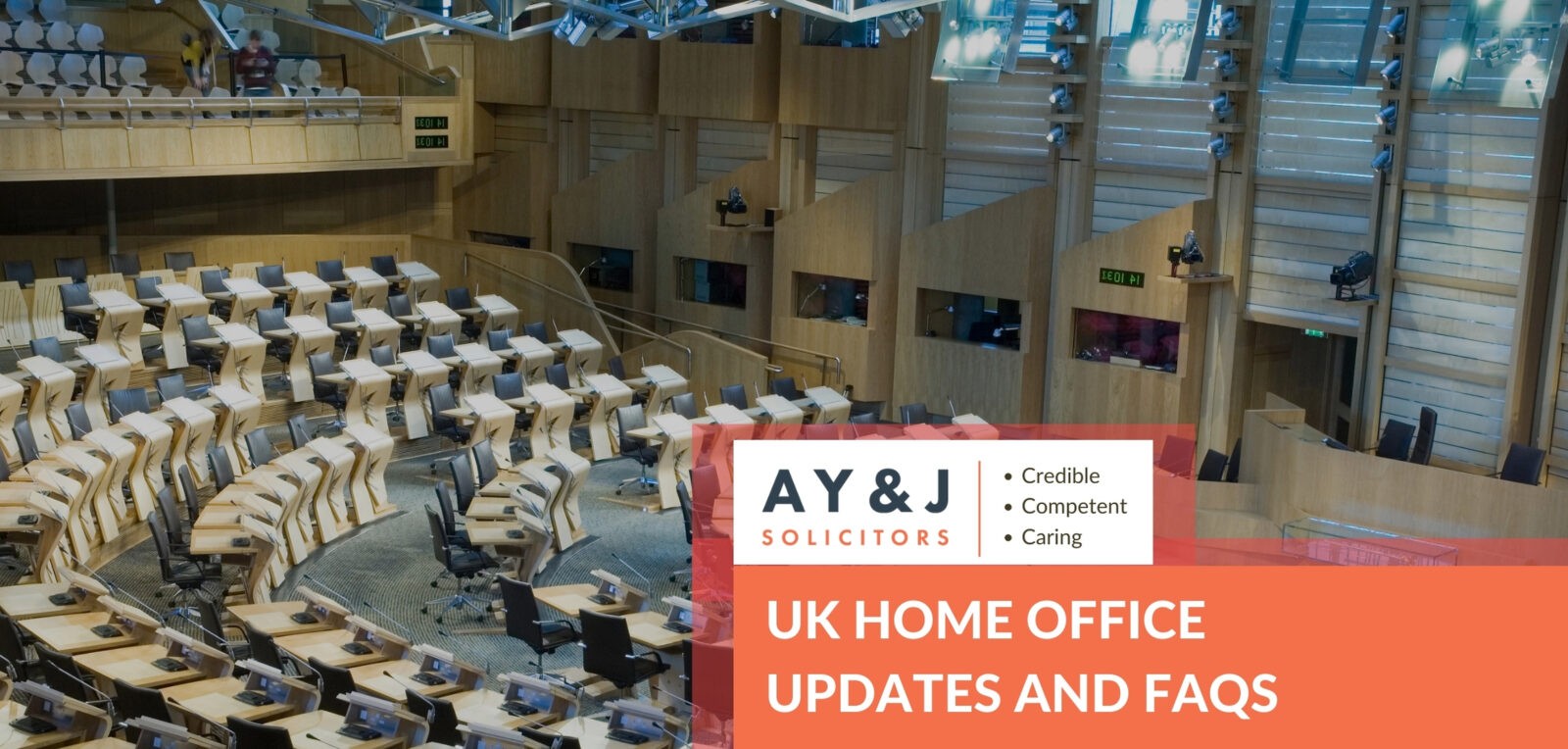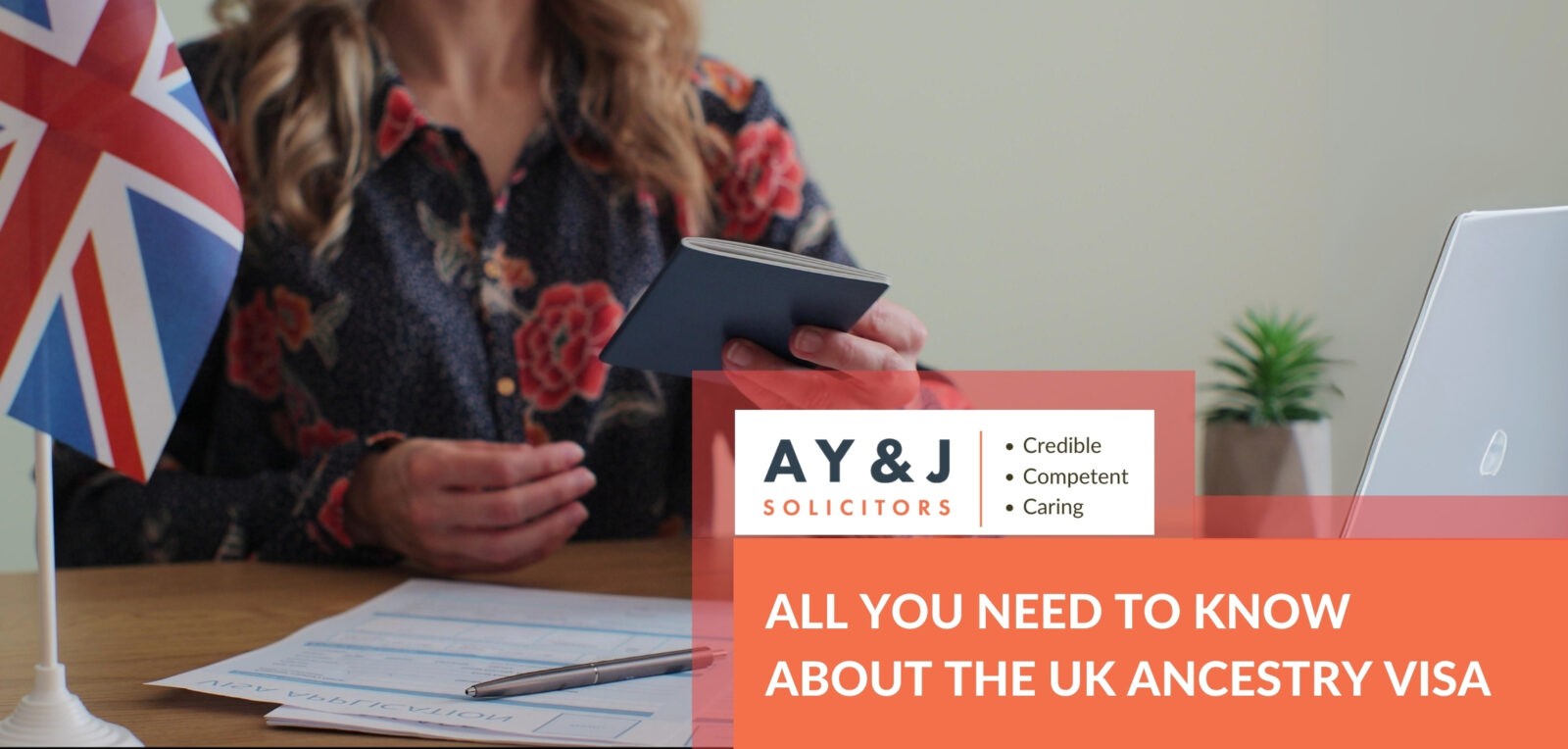Disclaimer: The information in this blog is accurate as of its publication date. Any updates after that date are not reflected here.
If a friend or loved one would like to come to the UK on a Standard Visitor Visa, including a letter of invitation with their application can greatly increase the likelihood that it will be accepted.
The UK is an expensive place to visit, so the UK Border Agency will want to confirm that visitors to the UK have the provisions to take care of themselves. This will typically be in the form of a hotel reservation and proof of funds for the duration of their trip.
But if the person is planning to stay with friends or family during their trip, and their expenses will be generously covered by their host, this can be more difficult to prove.
To get around this issue, some applicants will use a letter of invitation from their hosts to help confirm the details of their visit. If the applicant has had a visitor visa application denied in the past, supplying a letter of invitation with their subsequent application could help to avoid a similar fate.
In this guide, we will explore the purpose of the letter of invitation, who can write one, what needs to be included and then a sample of what a letter of invitation might look like.
Table of Contents
What is a letter of invitation?
The letter of invitation is simply a formal way to confirm that an individual will be staying in your home during their visit. It can also confirm things like the proposed duration of their visit and how they will fund their trip.
This can give reassurance to Border Control Officers that the purpose of the individual’s visit is genuine. Genuineness is one of the more vague aspects of UK visa application requirements.
The letter of invitation will demonstrate that you have ties to the individual and that you intend to support them during their trip, either by providing accommodation or paying for their living expenses.
Without this letter, the applicant might need to demonstrate that they have a hotel room for the duration of their visit and funds to cover their visit.
Who needs a letter of invitation?
A letter of invitation is not a requirement for a Standard Visitor Visa, but it can help to strengthen an application and reduce the chance of scrutiny at the border. To avoid a trip being cancelled at the last minute because you are unable to gain entry clearance to the UK, you might consider securing a letter of invitation.
A letter of invitation is particularly useful if you have limited funds for your trip and you intend to stay with friends or family. The nature of your visit may be called into question if you do not have accommodation booked or you don’t have extensive funds to pay for your visit.
To get around this, we recommend supplying a letter of invitation alongside your application. You should also travel with this letter, as it will include important information that border agents may wish to check before granting you entry clearance.
Who is eligible to write a letter of invitation?
To be eligible to write an invitation letter for a UK visa, you need to meet the following criteria:
- You must be a UK citizen or have permanent residence
- You must be a friend, relative or partner/spouse of the visitor
- You must have your own accommodation, such as a house or flat that you rent or own
- You must have enough space to accommodate your visitor for the duration of their visit
If you will not be staying at your home for the duration of the visit, you need to provide evidence of other accommodation provisions. For example, this could include a hotel reservation for a weekend trip away.
The person writing the letter should also be aware of what is happening and be able to confirm the details of the letter if asked about this at a later date. You can get help to write the letter, but you should be aware you may be asked to confirm the details later.
What should you include in a letter of invitation?
Your invitation letter for a UK visa should include all of the relevant information about the visit. This can include:
- Details of your citizenship or residence status
- Information about your relationship to the applicant and how long you have known them
- Details about your accommodation, including the address, type of property and whether you own or rent
- Information about your occupation and your employer. This will help to confirm you have the funds to support the individual for the duration of their visit, if relevant.
- Details about the timing of the trip, including the full duration and how long you will be supporting them. You don’t have to have exact dates. For example, you could write “I have invited [applicant] to stay in my home for two weeks in November.”
- Information about the purpose of the visit, such as visiting family or tourism.
- If you intend to cover all of their expenses, part of their expenses or none of their expenses.
Above all else, you should be honest in your invitation letter. Don’t feel pressured to lie in the letter just to make things easier for the applicant. For example, if they are only staying with you for a few nights and then they are making their own arrangements, you can state this in the letter. It’s down to the applicant to confirm their arrangements for the trip.
Should I provide supporting documents with the letter?
Supporting documents can help to strengthen the merit of your letter of invitation. The documents you provide will all depend on the information you share in the letter. Supporting documents could include:
- A copy of your passport or proof of residence status
- Proof of ownership of your property or a tenancy agreement
- Proof of your financial means, such as bank statements
- Details of travel plans and itineraries
Anything that can support the statements in your invitation letter will help to improve the chances the individual will be granted entry to the UK.
Who should the letter be addressed to?
This part often confuses people as the letter isn’t really intended for anyone in particular, it is just a formal way to confirm you will be hosting the applicant. It’s common to address the letter “To whom it may concern”, or “Dear Sir/Madam”.
Sample letter of invitation
If you’re not sure what to include in your letter of invitation, or how to format it, we’ve included a sample letter below. Use this as a reference, but don’t copy it directly, as some of the information might not be relevant to you.
Your Name
Your Address
Your Phone Number
Your Email Address
Date
Application for Standard Visitor Visa For <Applicant’s Name>
Dear Sir or Madam,
This is a letter of invitation for <Applicant’s Name and Date of Birth> to stay with me, <Your Full Name and Date of Birth> at <Your Address> on <Dates of Visit>.
<Applicant’s Name> is my <Relationship to you> and I have known them for <X> years. The purpose of the trip is for sightseeing around the UK and for visiting family members. In addition to two weeks spent at my home, we will also travel to Brighton where we will stay at the <Hotel Name> for <X> days. I have enclosed a copy of your train reservations and hotel booking confirmation.
I am a UK citizen by birth and I have enclosed a copy of my passport to confirm this. I rent my own three-bedroom home and have included a copy of my tenancy agreement to confirm this. My guest will occupy one of the bedrooms for the duration of their visit. I will also be covering their food and travel expenses during this trip.
I am employed full-time as an accountant and have included my three most recent pay cheques and copies of my bank statements to confirm I have the funds to accommodate my guest. I have also included a copy of my holiday request confirmation from my employer to confirm I will be taking annual leave for the duration of my visitor’s stay.
If you require any further information about the visit, please don’t hesitate to get in touch.
Yours faithfully,
<Your Name and Signature>
How can A Y & J help?
A Y & J Solicitors is a specialist immigration law firm with extensive experience with standard UK visitor visas. We have an in-depth understanding of immigration law and are professional and results-focused. For assistance with your visa application or any other UK immigration law concerns, please contact us on +44 20 7404 7933 or contact us today. We’re here to help!










